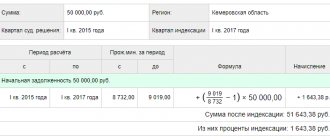The rights, freedoms and interests of children are the main value of any rule of law state and civil society. Their violation not only leads to children suffering here and now, but also has a negative impact on future generations, and this also reflects the legal culture and moral level of the entire modern society.
Russian legislation entrusts parents with the priority responsibility for raising and supporting their child and protecting him. So, according to Art. 63 of the Family Code of the Russian Federation (hereinafter referred to as the Family Code of the Russian Federation), parents are responsible for the upbringing and development of their children. They are obliged to take care of the health, physical, mental, spiritual and moral development of their children, as well as to protect the rights and legitimate interests in all cases of their violation, without exception. At the same time, parents are the legal representatives of their children and act in defense of their rights and interests in relations with any individuals and legal entities, including in the courts, without special powers, permission or power of attorney (Article 64 of the RF IC).
Article 8 of the RF IC provides for the following ways to protect the rights of children:
Judicial order. The protection of children's rights or the restoration of violated rights is carried out by the courts according to the rules of civil, criminal or administrative proceedings.
Parents, being the legal representatives of their children, on their own behalf, but in the interests of the children, have the right to go to court. Depending on the nature of the illegal actions, as well as the violated rights of the minor, the procedure, timing and form of appeal may vary.
Let us consider, as an example, a situation where one parent goes to court in order to recover alimony from the other parent for the maintenance of a minor child.
This situation certainly falls into the category of family legal relations, because is regulated by the norms of the RF IC (Articles 80-88, 99-120), but at the same time, the procedure for going to court is regulated by the Civil Procedure Code of the Russian Federation (hereinafter referred to as the Code of Civil Procedure of the Russian Federation), and relates to claim proceedings. This means that the parent must file a claim in court. You can go to court at the place of residence of the defendant, or at your place of residence - at your own discretion (Part 3 of Article 29 of the Code of Civil Procedure of the Russian Federation). In this case, it is necessary to apply to the district court to collect alimony.
According to clause 14, part 1, art. 333.19 of the Tax Code of the Russian Federation, the amount of the state duty in cases of collection of alimony for child support is 150 rubles.
Key documents that the plaintiff must attach to the statement of claim: copies of the statement of claim for the court and the defendant; a copy of the receipt for payment of the state fee; copies of the plaintiff’s passport, as well as the child’s birth certificate; documents confirming that the second parent does not fulfill his responsibilities for the maintenance and upbringing of the child.
The result of filing such a claim in court will be a court decision to collect child support from the parent. In case of failure to comply with the court decision, the collection of alimony will be carried out by bailiffs in the manner of enforcement proceedings.
Appeal to the competent authorities, which include: authorities of the Ministry of Internal Affairs (police), prosecutor's office, guardianship and trusteeship authorities. It should be noted that the above bodies act only within the limits of their competence.
For example, the prosecutor's office acts on the basis of the Federal Law "On the Prosecutor's Office of the Russian Federation" dated January 17, 1992 No. 2202-1-FZ (hereinafter referred to as the Law on the Prosecutor's Office of the Russian Federation), and can bring a claim for deprivation of parental rights (Article 70 of the IC), restriction in parental rights (Article 73 of the Family Code), on the cancellation of the adoption of a child (Article 142 of the Family Code); submit statements to the court, guardianship and trusteeship authorities demanding restoration (recognition) of the violated (challenged) rights of the child (Article 21 of the Law on the Prosecutor's Office of the Russian Federation); directly participate in court consideration of cases on the protection of children’s rights (Article 35 of the Law on the Prosecutor’s Office of the Russian Federation; Articles 72, 73, 125, 140 of the RF IC); submit a warning about the inadmissibility of violating the rights of the child in the future and proposals to eliminate violations of the law (Article 24, Article 25 of the Law on the Prosecutor's Office of the Russian Federation); protest, if there are grounds, acts of other administrative bodies that are directly related to the protection of children’s rights (Article 23 of the Law on the Prosecutor’s Office of the Russian Federation).
Internal affairs bodies (hereinafter referred to as OVD) are guided in their activities by the Federal Law “On Police” dated 02/07/2011 No. 3-FZ, the Criminal Code of the Russian Federation, the Code of Administrative Offenses in the Russian Federation, the Investigative Committee of the Russian Federation and other legislation. Department of Internal Affairs employees have the right to participate in the enforcement of decisions related to the removal of a child (Article 79 of the Criminal Code), as well as in the search for persons evading the execution of court decisions in disputes related to the upbringing of children. Also, internal affairs bodies carry out individual preventive work with families in which the rights of the child are violated; with parents who do not fulfill or improperly fulfill their responsibilities for the upbringing, education or maintenance of minor children; participate in identifying facts of violation of children’s rights in the family; where necessary, prepare cases for deprivation and limitation of parental rights.
At the same time, in order to protect the rights and legitimate interests of children, parents and their legal representatives have the right to apply to the commission on the affairs of minors and the protection of their rights under the local city administration. Among the powers of these commissions can be noted: prevention of delinquency and neglect among minors, social and pedagogical rehabilitation of minors in a socially dangerous situation, identification and suppression of cases of involvement of minors in committing crimes and antisocial actions.
The activities of guardianship and trusteeship bodies are regulated by Federal Law No. 48-FZ of April 24, 2008 “On guardianship and trusteeship.” In accordance with Art. 121 of the RF IC, guardianship and trusteeship authorities identify children left without parental care, keep records of such children and, based on the specific circumstances of the loss of parental care, choose the forms of their placement, and also carry out subsequent control over the conditions of their detention, upbringing and education. In addition, the guardianship and trusteeship authorities: file claims for deprivation of parental rights, restriction of parental rights, act as a defendant in cases of restoration of parental rights, abolition of restrictions on parental rights, give opinions on cases related to the establishment of adoption, cancellation of adoption, give opinions on disputes related to raising a child in a family, in accordance with Art. 79 of the RF IC are involved in the execution of court decisions in cases related to the upbringing of children.
Recently, in the field of protection and protection of the rights, freedoms and legitimate interests of children, the Institute of the Commissioner for Children's Rights in the Russian Federation and in certain constituent entities of Russia has been gaining importance. In accordance with the Federal Law “On the Basic Guarantees of the Rights of the Child in the Russian Federation” dated July 24, 1998 No. 124-FZ, Decree of the President of the Russian Federation dated September 1, 2009 No. 986 “On the Commissioner under the President of the Russian Federation for Children’s Rights”, the main tasks of the Commissioner for Children’s Rights are: exercising independent control over compliance with the rights and legitimate interests of children; ensuring guarantees of state protection of children; promoting the unhindered implementation and restoration of their violated rights, freedoms and legitimate interests; improving the mechanism for ensuring and protecting the rights, freedoms and legitimate interests of children; clarification and promotion of the rights, freedoms and legitimate interests of the child among children and their legal representatives; assistance in improving legislation in this area.
It should be mentioned that parents do not have the right to represent the interests of their children if the guardianship and trusteeship authority determines that there are contradictions between the interests of parents and children. In case of disagreements between parents and children, the guardianship and trusteeship authority is obliged to appoint a representative to protect the rights and interests of the children.
Based on the above, we can conclude that the legislation of the Russian Federation provides the necessary methods and opportunities to protect the rights, freedoms and interests of minors. The main problem remains the low level of awareness of citizens about the methods and possibilities of protecting their children. It is important for parents to understand that protecting the rights and freedoms of their children is not just their right, but a responsibility. Otherwise, the competent authorities may also pay attention to parents whose inaction causes harm to the child.
Member of the Tambov regional branch of the All-Russian public organization “Association of Lawyers of Russia” Artem VOROBYEV
The Law on the Protection of the Rights of the Child and other acts guaranteeing the protection of the interests of minors.
As has already been noted, the foundations of legal regulation on the topic under consideration are laid down by the Constitution of the Russian Federation and the international Convention.
In addition to these acts, Federal Law No. 124-FZ dated July 24, 1998 was adopted at the federal level. It spells out the basic guarantees of the state in relation to children.
In addition, the indicated list can be supplemented with other documents that, to one degree or another, regulate the issue.
These include:
- RF IC. The act regulates the norms of relations between blood relatives;
- Code of Civil Procedure of the Russian Federation. Includes rules for the adoption of minors, and also establishes the rights of the child’s legal representatives;
- Code of Administrative Offenses of the Russian Federation. Provides sanctions for failure by the mother and father to fulfill their direct responsibilities related to the maintenance and upbringing of the child;
- Labor Code of the Russian Federation. Regulates issues of employment of persons under eighteen years of age;
- Criminal Code of the Russian Federation. Establishes punishment for committing a crime against a child;
- Federal Law of December 29, 2012 No. 273-FZ. Concerns education issues.
Employment of minors: aged 14 to 16 years, in the summer.
Child has conflicts at school.
Often conflict situations arise in the process of educational activities. Parents may find out that their son or daughter is being harassed at school by peers or teachers.
If the issue is not so serious, then it may well be resolved through a personal conversation with the director of the educational institution.
You can also fill out an official application addressed to the head of the organization and submit it to an authorized person.
In more complex cases or in the absence of a response from the school administration, you will need to contact higher authorities.
These include the regional department of education or a district (city) unit.
However, the greatest problems for a minor are caused by the illegal actions of his relatives. Such cases are considered by the guardianship authority at the request of the interested person or government agencies.
It is worth remembering that to notify the authorized structure it is not necessary to write an official statement.
It is enough to simply inform a specialist about a threat to the life, health or psychological state of the child. The OiP is obliged to check this fact for accuracy and take appropriate actions.
The latter consists of filing a lawsuit in court with the aim of limiting the rights of parents.
If the offense relates to acts falling under the articles of the Code of Administrative Offenses or the Criminal Code of the Russian Federation, then the police and prosecutor's office, guardianship and trusteeship authorities are involved in the case.
However, the final decision made on the basis of materials received from law enforcement agencies is within the competence of the court.
Who protects children's rights?
Protecting the rights of the interests of children in the family and minors left without parents falls on the shoulders of the legal representatives of the minor (mother and father, adoptive parents, guardians, social protection institutions).
If a person has received information that the rights of minors are being violated by their legal representatives or third parties, then he has the right to complain to the following structures:
- O&P body;
- prosecutor's office;
- local department for minors under the Ministry of Internal Affairs of the Russian Federation or a stronghold of a local police officer;
- Ombudsman for Children's Rights. Such a structure exists in every subject of the Russian Federation.
Upon reaching the age of fourteen, the child has the right to independently defend his rights by contacting the above-mentioned authorities.
In this case, if illegal actions on the part of the parents are identified, the issue of depriving the minor of rights or depriving him of the status of a guardian may be decided.
Often such proceedings end in criminal proceedings against the offenders.
However, each situation must be considered individually, taking into account all factors.
The structure to which the application is submitted depends on the area in which the interests of the minor are violated.
Passport for a 14-year-old child: how to get it through government services and through the MFC.







